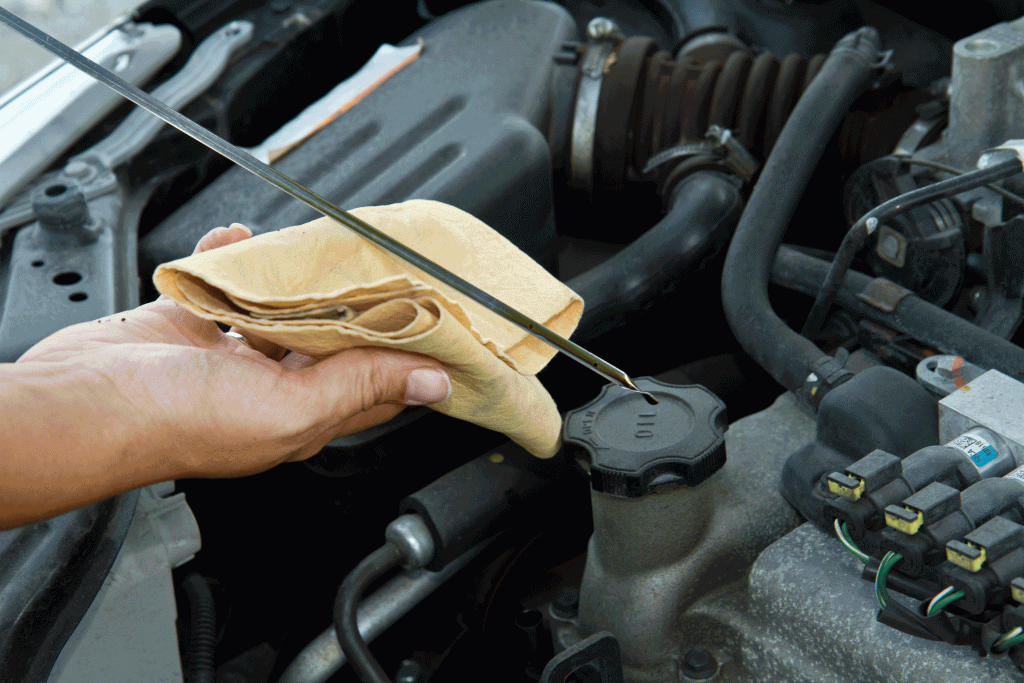As you might already know, practically every vehicle needs motor oil and that oil needs to be routinely changed to ensure your car is able to run effectively.
That said though, there’s a little bit of complexity that goes into vehicle oil, how to choose which oil and when you should change your oil. With modern cars designed to be as efficient as possible, and with a lot of rather niche requirements, it can be hard to know how often you should change your oil, and whether it’s worth having professionals do it.
The expert automotive team at Enji Australia advise that if you use the wrong oil, for example, or fail to change your oil regularly enough, you could damage your car’s engine beyond repair, or cause a costly repair job to be undertaken.
That said, we’ll take a look below at how often you should change your oil, and go over a little about why oil is important for your vehicle’s operation.
1. A Quick Insight into Car Oil

Source: magbmwofdublin.com
Before we get into the frequency you should change your oil, we’ll take a quick look at the types of oil you’ll need and what these oils do in your vehicle.
To keep things short, the more modern vehicles will require a rather specific synthetic-blend oil and or an entirely synthetic variety that has been designed to be as low-viscous as possible and able to easily flow through your vehicle’s components.
That in mind, these oils are also not as heavily reliant on fossil fuels and resources, making them better for the environment, so be sure to take a look at your car’s oil requirements before purchasing the engine oil for it.
Keeping these points noted, these oils are what will help to minimize engine component friction and to improve fuel economy.
When it comes to purchasing your vehicle’s oil, you’ll need to make sure you find an oil with the correct SAE grade for the correct viscosity. If this metric isn’t correct, you’ll be reducing your vehicle’s ability to meet its performance and efficiency requirements, which is potentially lawbreaking depending on where you’re located.
You’ll be able to find information on this oil type in your vehicle’s manual, so be sure to take a look in here first.
2. Vehicle Age

Source: magbmwofdublin.com
As we mentioned, most modern cars rely on an entirely synthetic and low-viscosity type of oil. However, older models will require a different type of oil and also require a different oil change interval.
For example, in the past, it was important to change your oil every 4,500 to 5,000km though with more modern engines and engineered oils, you can change this to an infrequent 10,000km to 12,000km depending on your car.
That in mind, you should still always double check with your vehicle’s user manual for information on which type of oil to choose and when to change the oil, or when to book a service for an oil change.
3. How Often to Change Oil — New Models

Source: volkswagen.co.uk
When it comes to the frequency of an oil change for newer cars, you’ll often be able to tell when you need to change the oil by taking a look on your instrument panel.
Of course, it’s good to know a kilometre metric, though the small oil change light on the dashboard will let you know when to change the oil too.
As you might expect, with modern cars taking advanced synthetic oils, you can change your oil every 12 months and not have an issue, which is good to know. You’ll be able to rely on your annual or bi-annual vehicle service to take care of the oil change for you.
4. How Often to Change Oil — Older Models

img source: autorepublika.com
Where things can become a little complicated is with older vehicles.
As you’ll agree, newer cars are a lot easier to take care of and have a tonne of technology embedded within them to help with everything from air pressure to oil. However, older cars don’t have much to help you at all.
That in mind, you’ll need to change an older vehicle’s oil based on mileage rather than a specific time frame. For example, it’s recommended that you change or top up an older vehicle’s oil every 3,000km to 5,000km depending on it’s age and also to look out for issues on your dashboard’s instrument panel.
If you’re noticing higher temperatures than normal, increased fuel burn or sluggishness, it might be time to top up your oil or book a service for an oil change.
Conclusion
Whether you have a newer vehicle or an older one, it’s integral to always keep on top of oil changes to maintain your car’s efficiency and safety.
Keep in mind that oil changes are based on a period of time for newer cars and a distance on older ones. You should also not change or judge a car’s oil based on the colour or the appearance of the oil.
To end, keep an eye on the instrument panel and the way your vehicle is driving for some tell-tale signs that it’s time to change your oil and rely heavily on the user manual and service sheet for information on when you should be changing your oil and how often.




